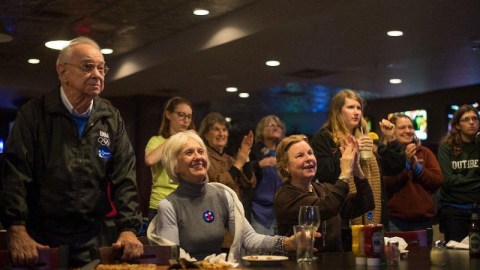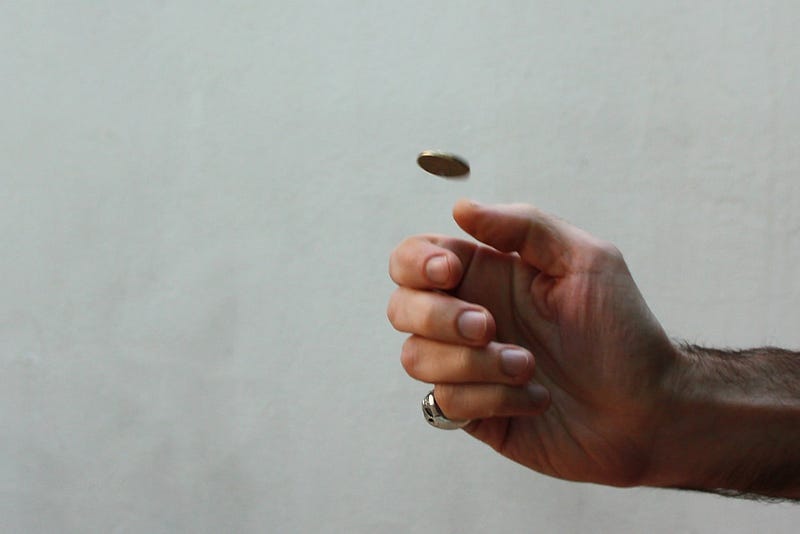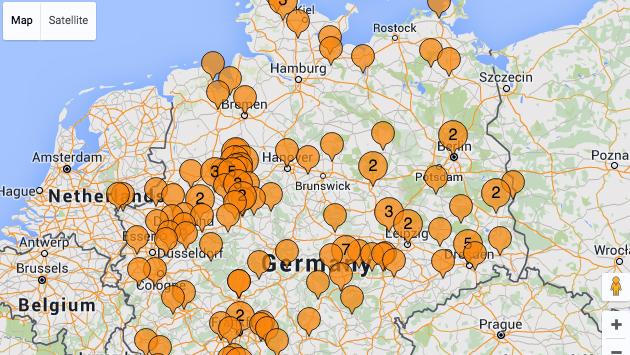The science of Hillary Clinton’s coin toss victories

In the Iowa caucuses, she won six coin tosses in a row to decide state delegates. Foul play, or normal statistics?
“[T]he coin of life has meaning and value no matter what side it lands on. It’s each individual’s choice whether to bet on the outcome or not, but ultimately your coin of life will be spent somehow.” -Virgil Kalyana Mittata Iordache
There’s an interesting fact about running for president that few people know: in each state’s primary, candidates don’t just run for the delegates a state awards to each candidate. Sure, those are the main goal of a candidate’s campaign: to win enough State Delegates to be chosen at their party’s national convention. But each state also has their own convention, from which County Delegates for each candidate are chosen from among the different caucus precincts, and candidates are vying for those delegates as well.
While yesterday’s caucus in Iowa was incredibly close on the democratic side, with Hillary Clinton winning 22 State Delegates (and 49.9% of the popular vote) and Bernie Sanders with 21 (and 49.6%), the individual caucus precinct races were even closer. In some Iowa counties, there were an odd number of County Delegates to be awarded (or in one case, an orphan delegate), and the Clinton/Sanders races were literally a dead heat. And in the case of a dead heat, Iowa has a rule on which candidate receives the odd delegate: a coin toss.
This is how the #IowaCaucus works. A tie is solved tossing a coin @HillaryClinton wins pic.twitter.com/yZDTUKFJXQ
— Fernando Peinado (@FernandoPeinado) February 2, 2016
According to the Iowa Democratic caucus guide:
In a case where two or more preference groups are tied for the loss of a delegate, a coin shall be tossed to determine who loses the delegate.
A coin toss took place, yesterday, in six separate Iowa precincts, including in Ames, Des Moines (twice), Newton, West Branch and Davenport. And quite remarkably, Hillary Clinton won all six.
https://twitter.com/andytadlock/status/694340486908088320
A lot of people are claiming this is really against the odds, since there’s only a one-in-64 (or a 1.56%) chance of all six coin flips going Clinton’s way. But is that really unusual? Consider the following outcomes, and which ones you would (or wouldn’t) consider unusual:
- Six coin flips: Clinton wins 6, Sanders wins 0.
- Six coin flips: Clinton wins 5, Sanders wins 1.
- Six coin flips: Clinton wins 4, Sanders wins 2.
- Six coin flips: Clinton wins 3, Sanders wins 3.
- Six coin flips: Clinton wins 2, Sanders wins 4.
- Six coin flips: Clinton wins 1, Sanders wins 5.
- Six coin flips: Clinton wins 0, Sanders wins 6.
If you’re like most people, you’d say it wouldn’t be unusual if Clinton and Sanders each won 3, and it probably wouldn’t be that unusual if either Clinton or Sanders won 4, while the other won 2. But 5:1 or 6:0 seems too unlikely to occur at random, doesn’t it?
Unfortunately, this is one of those cases where our mathematical intuition and what actual probabilities are don’t line up at all. If you have a fair (50/50) coin at play in each instance, it’s true you’re more likely to have three “wins” for each candidate than any other specific outcome. But it’s still not all that likely: there’s only a 31.25% chance that Clinton and Sanders would have walked away with three delegates apiece. Furthermore, the odds that Clinton would win four and Sanders would win two is only a little worse: 23.44%. But if you combine that with the odds that Sanders would’ve won four with Clinton winning two, you get that a 4:2 outcome has a 46.88% chance of happening. Meaning the “unlikely” outcomes of 5:1 or 6:0? They actually have a 21.88% chance of occurring, which is about the same as your odds of winning any prize at all (most likely, $4) if you buy six random Powerball tickets.

Sure, there might have only been a 1.56% chance that Clinton would win all six, but those odds aren’t all that long, especially when you consider that there’s also a 1.56% chance that Sanders could’ve won all six, for a total chance of 3.12% that someone would have won all six. Three percent may not be a lot, but it’s not that small either: if you had a three percent chance of getting run over the next time you crossed the street, you just might think twice before doing so.

But you might be wondering just how rare a coin flip might be? Is it odd (or improbable) that we would need six coin flips in a very close two-person racewith 1,683 precincts? Assuming you had an average of 300 democratic voters in each precinct (for a tremendous turnout of 500,000 overall), and that each voter had a 50:50 chance of voting for either Clinton or Sanders, you’d find that there was about a 4.6% chance of a tie in each precinct. If this were the setup, you’d expect to get somewhere between 60 and 95 ties; getting only sixis really unusual!
You’re sure to read accusations that one side is cheating, but this very likely means something else entirely:
- that each voter doesn’t have a 50:50 chance of voting for either candidate,
- that each precinct isn’t uniform in their preference for one candidate or the other,
- that some precincts will have odd numbers of total voters for Clinton and Sanders (so there can’t be a tie),
- and that sometimes, getting any one particular relatively unlikely outcome is actually more likely than getting the most likely outcome.
Yes, it’s kind of unusual that all six coin flips went Hillary Clinton’s way in yesterday’s caucus, but it’s not that unusual at all. The weirdest thing of all?

Iowa is just one of thirty five states that decides tied elections with a coin flip. Perhaps that fact alone should be the greatest motivator to get out and vote.
Leave your comments on our forum, and check out our first book: Beyond The Galaxy, available now, as well as our reward-rich Patreon campaign!





